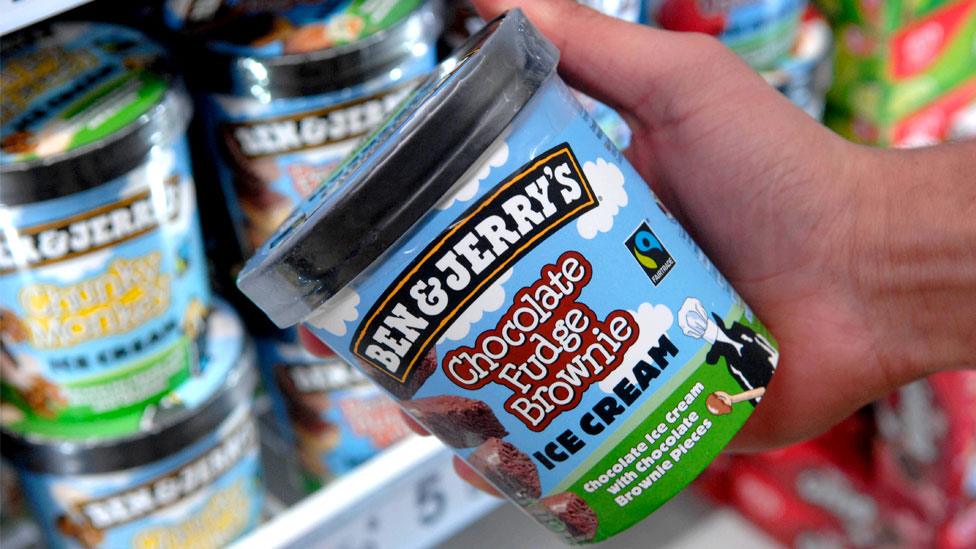Marmite maker Unilever to insist suppliers pay 'living wage'
- Published
- comments
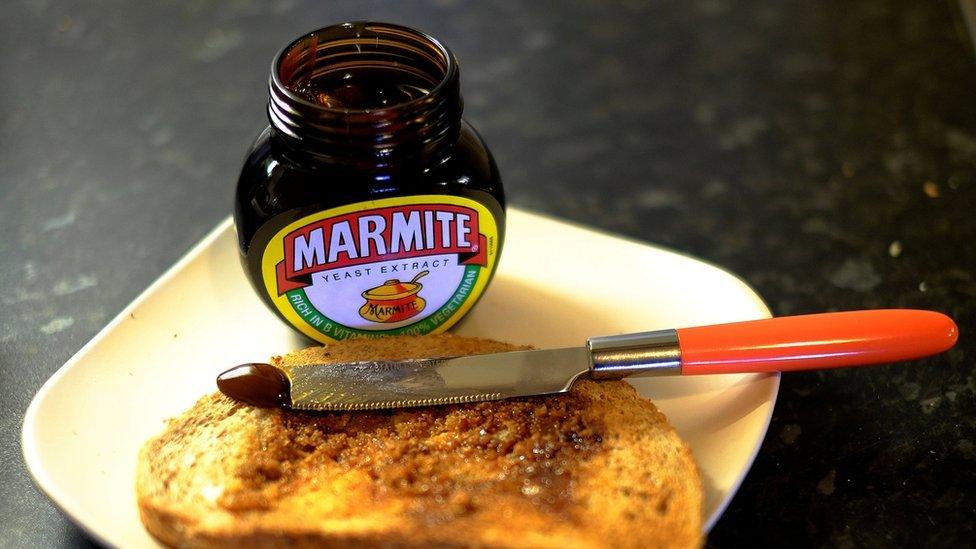
Marmite is one of Unilever's many brands
Unilever has said that by 2030 it will refuse to do business with any firm that does not pay at least a living wage or income to its staff.
The consumer goods giant defined a living wage as one that covered a family's basic needs "and helped them break the cycle of poverty".
It said it wanted to raise wages for people outside its own workforce in order to promote economic inclusion.
Unilever is one of the first big companies to make such a commitment.
Oxfam called the move a "step in the right direction".
Unilever, whose products include Marmite, Ben & Jerry's ice cream and Dove soap, said it was committed to helping to build "a more equitable and inclusive society".
"Our ambition is to improve living standards for low-paid workers worldwide," it said.
"We will therefore ensure that everyone who directly provides goods and services to Unilever earns at least a living wage or income, by 2030."
The wage should be enough to cover food, water, housing, education, healthcare, transport and clothing, and also include a provision for unexpected events, Unilever said.
The firm said it was working with partners to establish exact rates of pay in the 190 countries where it operates.
However, Unilever's chief human resources officer Leena Nair said it would pay twice as much as the minimum wage in some countries.
Unilever said it already paid its own employees at least a living wage, but it wanted to secure the same for more people beyond its workforce, specifically focusing on the most vulnerable workers in manufacturing and agriculture.


While there is no doubting Unilever's desire to improve the lot of those who make its products, there is also a commercial reason for its living wage initiative.
It wants all of its suppliers to pay their staff a decent wage by 2030, a plan that has the potential, given Unilever's enormous size and global reach, to change the lives of millions of people.
But the company also believes the move will give it an advantage in the fierce battle to attract buyers.
Alan Jope, Unilever's Scottish-born chief executive, says customers want to buy products with good credentials, and that this desire has only increased during the pandemic.
Mr Jope's comments suggest that the next consumer battlegrounds might not be price, convenience or range of product, but environmental and social considerations.
Unilever wants to get ahead of that trend, and plans to do well by doing good.

'Millions to benefit'
"We will work with our suppliers, other businesses, governments and NGOs - through purchasing practices, collaboration and advocacy - to create systemic change and global adoption of living wage practices," it added.
It has more than 60,000 direct suppliers worldwide, from smallholder farmers to major companies.
All of them will be covered by its commitment, it said, with millions of people set to benefit.
Unilever already audits its suppliers over climate change commitments, and will use these existing arrangements to make sure workers are being paid a living wage.
Suppliers not willing to sign up may lose their contracts with the firm, Ms Nair said.
Ethical initiatives
Also by 2030, Unilever said, it would equip 10 million young people with essential job skills.
Additionally, it committed to spending €2bn (£1.8bn) with suppliers owned and managed by people from under-represented groups by 2025 in an effort to improve diversity.
"The two biggest threats that the world currently faces are climate change and social inequality," said Unilever chief executive Alan Jope.
"The past year has undoubtedly widened the social divide, and decisive and collective action is needed to build a society that helps to improve livelihoods, embraces diversity, nurtures talent, and offers opportunities for everyone."
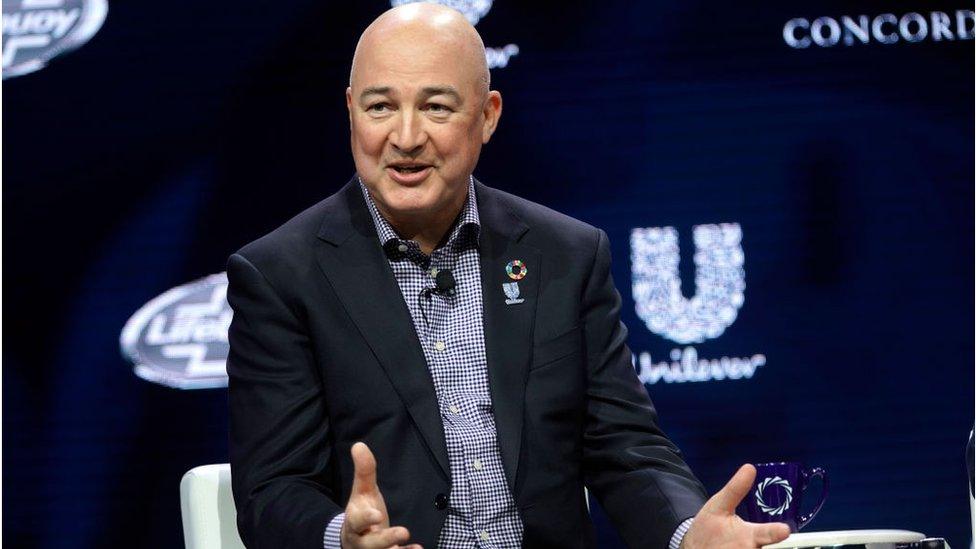
Unilever chief executive Alan Jope says the firm wants to be a "positive force in the world"
He told the BBC's Today programme that Unilever wanted to be a "positive force in the world in tackling this persistent and worsening issue of social inequality."
"Without healthy societies, we don't have a healthy business," he said.
The move is the latest in a series of ethical initiatives by Unilever, including promoting vegan food products and experimenting with a four-day working week.
Gabriela Bucher, executive director at Oxfam International, welcomed Unilever's announcement, calling it "an important step in the right direction".
She said: "Unilever's plan shows the kind of responsible action needed from the private sector that can have a great impact on tackling inequality and help to build a world in which everyone has the power to thrive, not just survive."
Laura Gardiner, director of the Living Wage Foundation, said commitments such as Unilever's show how some employers "are leading the way in spreading the living wage through both their business networks, and across their global operations".
Unilever's living wage move is unusual among big firms.
Food services giants Sodexo and Compass Group, which are on the Living Wage Foundation's list of recognised service providers, external, have made similar supply chain commitments in the UK.
- Published30 November 2020

- Published18 November 2020
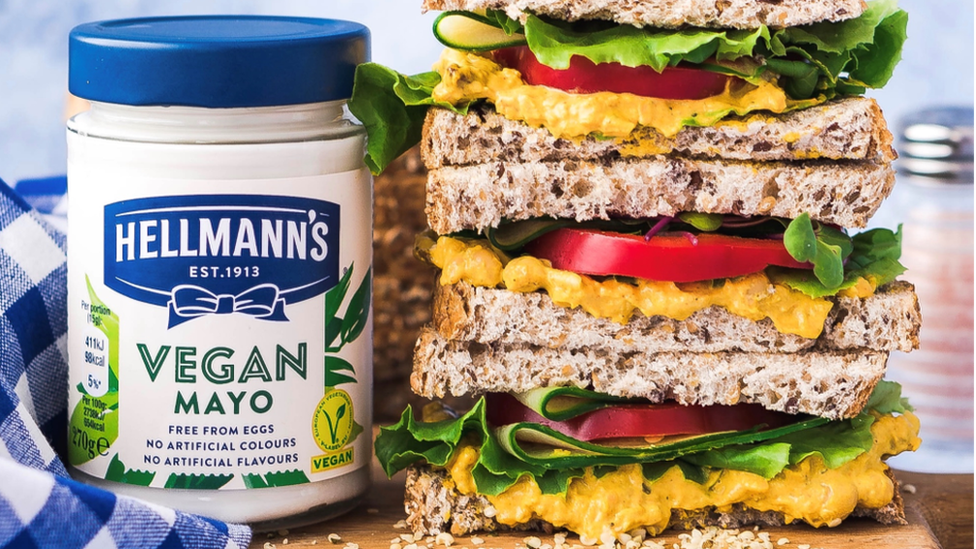
- Published2 September 2020
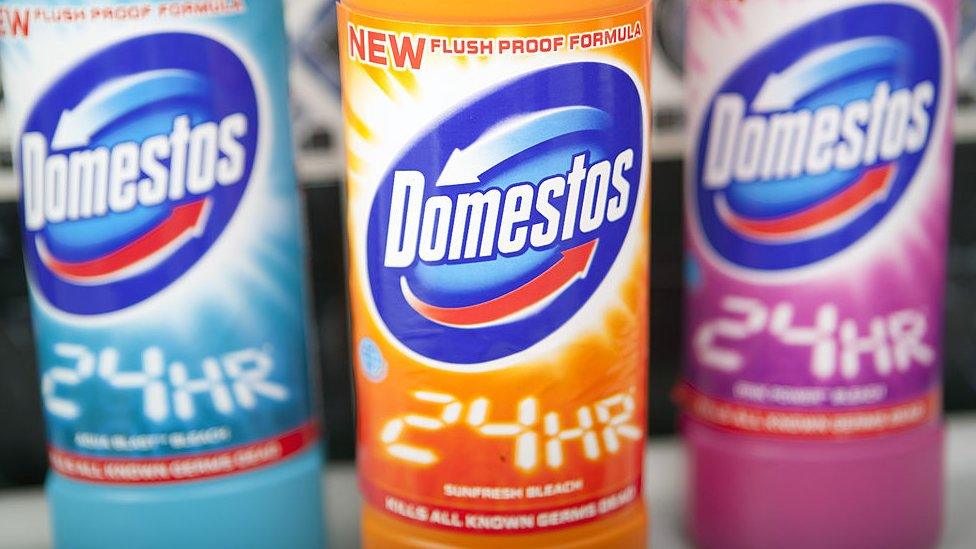
- Published11 June 2020
